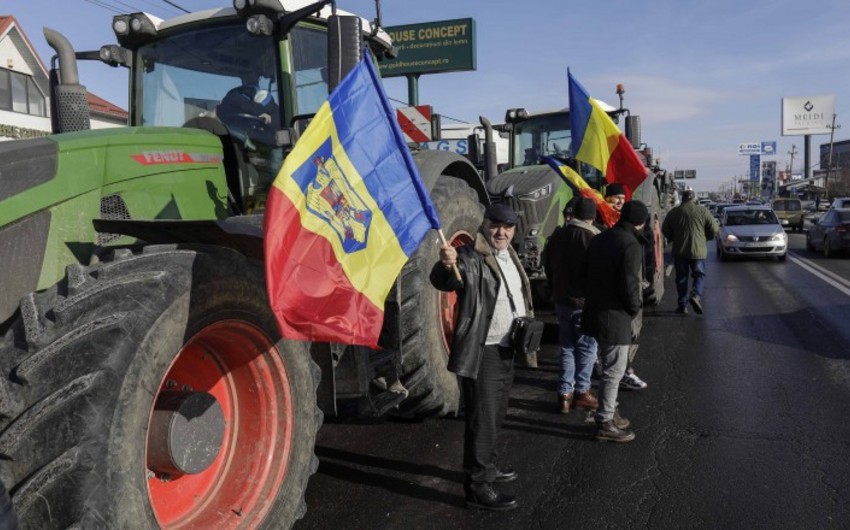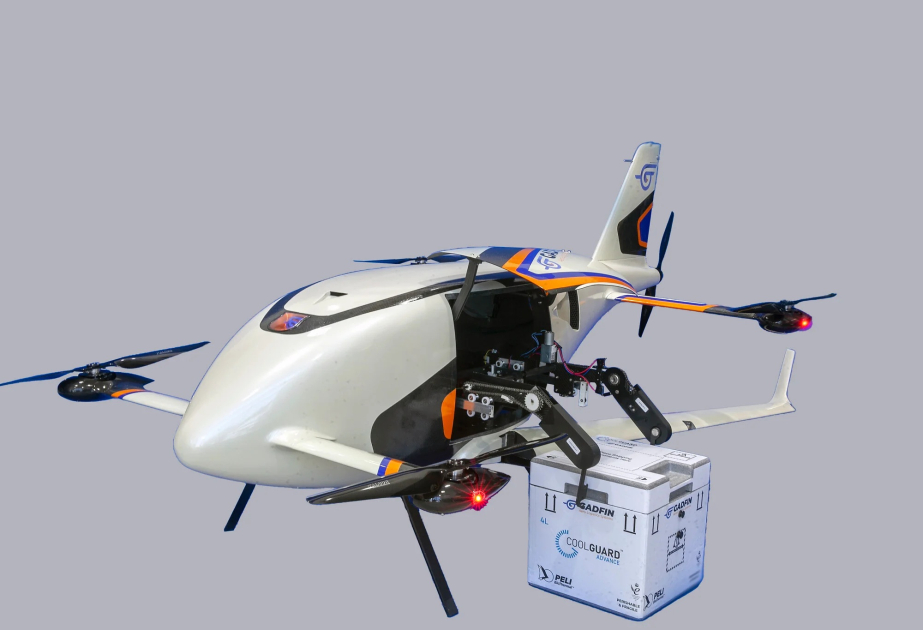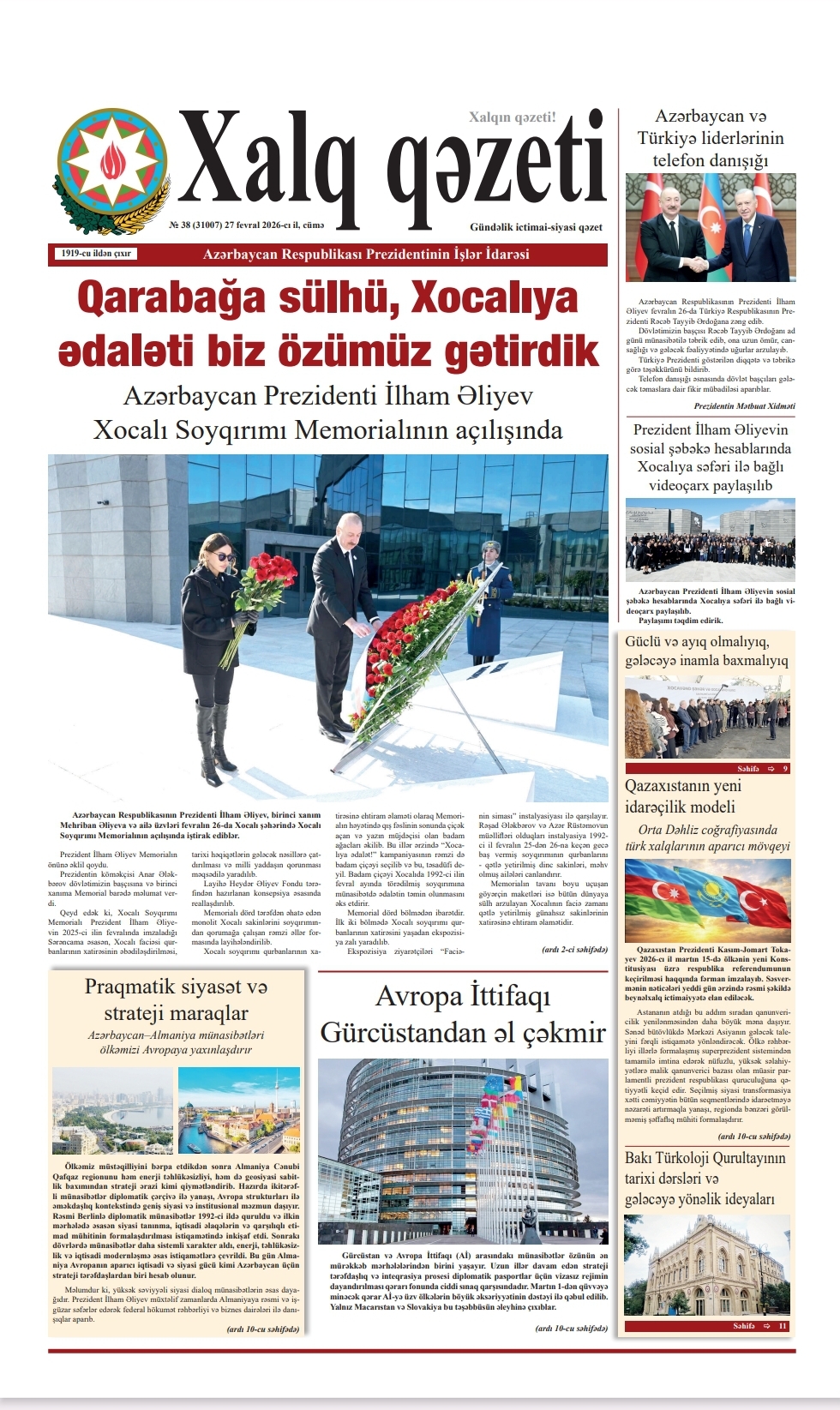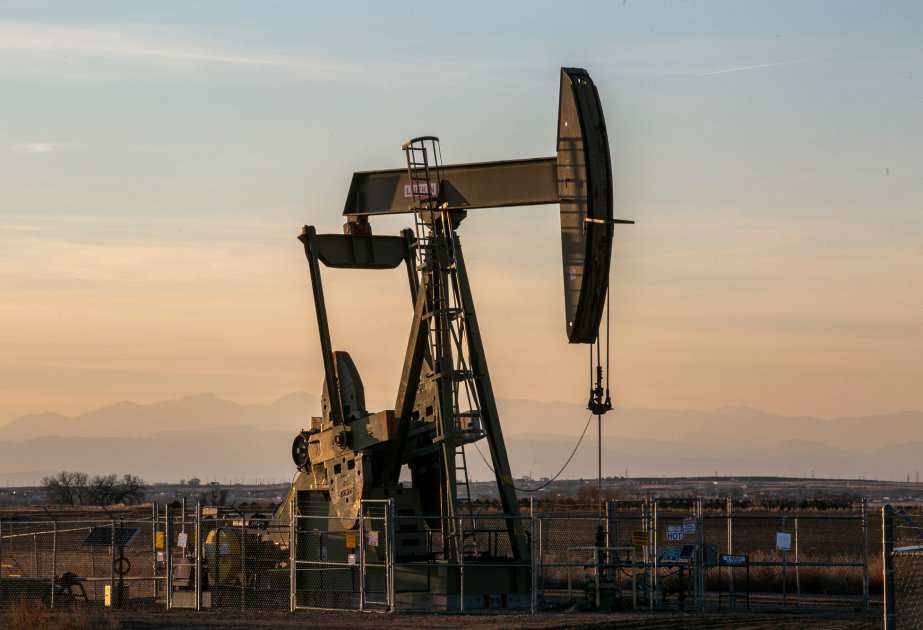Hundreds of Romanian farmers and truck drivers protested near border crossings with Ukraine and near large cities across the country on Monday amid ongoing negotiations with the government over high business costs, Report informs via Reuters.
The demonstrations were mainly against the high cost of diesel, expensive insurance rates, European Union measures to protect the environment and pressures on the domestic market from imported Ukrainian agricultural goods.
Convoys of tractors and trucks began gathering six days ago on national roads, mostly near large cities in the EU and NATO state, slowing or blocking traffic.
The protesters' demands include a moratorium on loan repayments, faster subsidy payments and separate lines at border crossings and the Black Sea port of Constanta for EU lorries and trucks from outside the bloc, including Ukraine.
On Monday, representatives of the largest farm associations and Agriculture Minister Florin Barbu agreed specific deadlines for a series of demands and the associations said they will recommend that protesters go home.
Truck drivers had more negotiations scheduled later this week.
Earlier on Monday, trucks and tractors took position on roads leading to the checkpoints of Siret and Vicovu de Sus on the border with Ukraine, slowing transit, but Romanian border police said customs formalities were still being completed.
The Constanta port authority told Reuters that protests had not disrupted operations. The largest gathering of protesting hauliers was on the outskirts of the capital Bucharest.
Ukraine is one of the world's biggest grain exporters and Constanta has become Kyiv's largest alternative export route since Russia's full-scale invasion in February 2022, with grains arriving at the port by road, rail and barge across the Danube.
Hungary's agriculture ministry said on Monday eastern EU states Bulgaria, Poland, Hungary, Romania and Slovakia had sent a letter to the European Commission requesting the EU impose import duties on Ukraine grains, citing unfair competition.
Such duties were lifted for Ukraine after Russia's invasion blockaded its ports, disrupting the transit of grains to global markets.




















